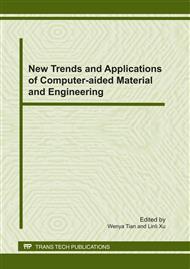p.203
p.210
p.215
p.220
p.225
p.230
p.236
p.241
p.246
Distributed Energy-Efficient Unequal Clustering Mechanism for Wireless Sensor Networks
Abstract:
Unequal clustering mechanism, in combination with inter-cluster multihop routing, provides a new effective way to balance the energy dissipation among nodes and prolong the lifetime of wireless sensor networks. In this paper, a distributed energy-efficient unequal clustering mechanism (DEEUC) is proposed and evaluated. By a time based competitive clustering algorithm, DEEUC partitions all nodes into clusters of unequal size, in which the clusters closer to the base station have smaller size. The cluster heads of these clusters can preserve some more energy for the inter-cluster relay traffic and the “hot-spots” problem can be avoided. For inter-cluster communication, DEEUC adopts an energy-aware multihop routing to reduce the energy consumption of the cluster heads. Simulation results demonstrate that the protocol can efficiently decrease the dead speed of the nodes and prolong the network lifetime
Info:
Periodical:
Pages:
225-229
DOI:
Citation:
Online since:
January 2011
Authors:
Price:
Сopyright:
© 2011 Trans Tech Publications Ltd. All Rights Reserved
Share:
Citation:


